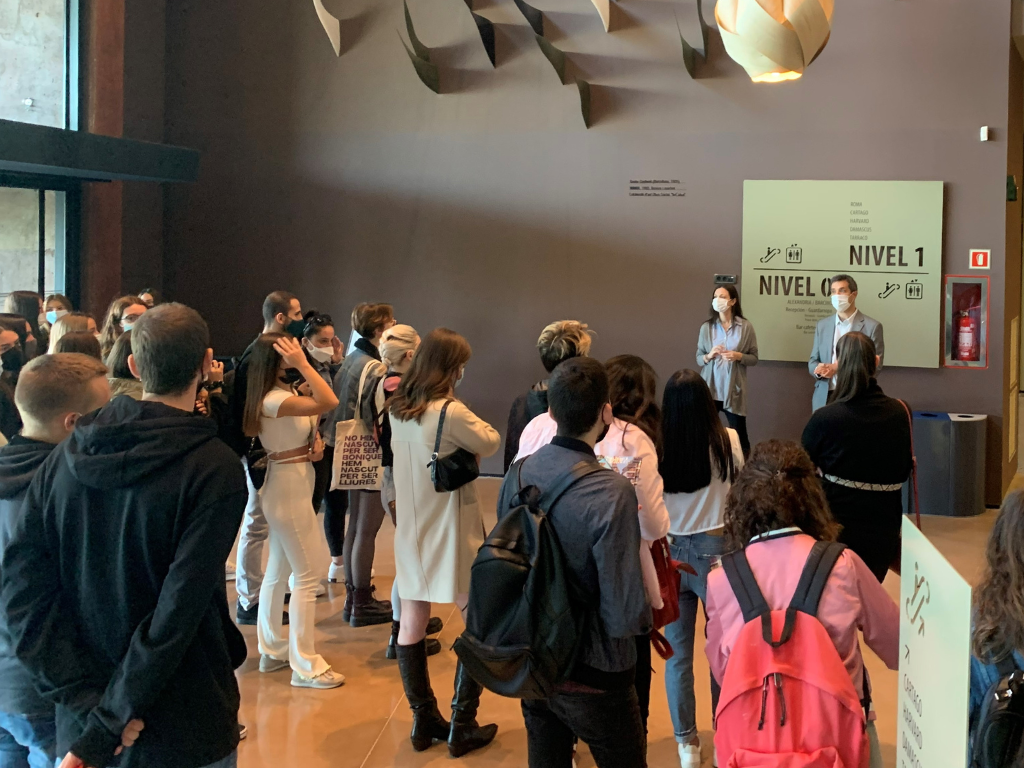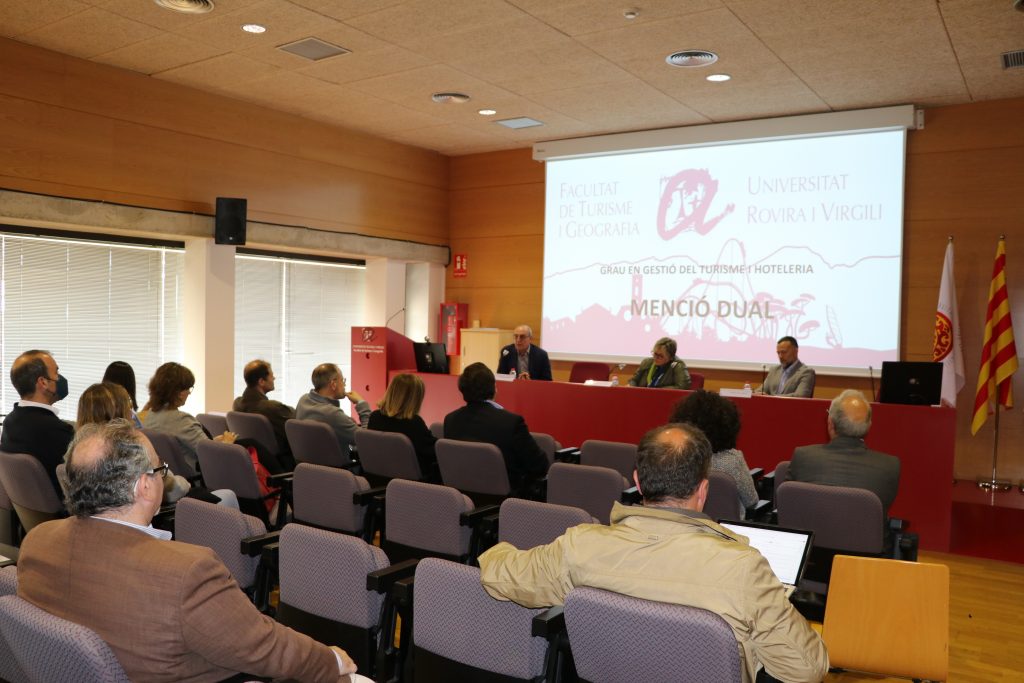29/04/2022
The Bachelor’s Degree in Tourism and Hotel Management is the only public degree in Spain that offers a dual qualification
Students who opt for the dual pathway as from the academic year 2022-23 will do a thousand hours of paid internships in companies and their Bachelor’s Degree Thesis

Students who opt for the dual pathway as from the academic year 2022-23 will do a thousand hours of paid internships in companies and their Bachelor’s Degree Thesis
Students on the Bachelor’s Degree in Tourism and Hotel Management who begin their third year of studies next year have the option of following the dual pathway that will be operational for the first time. That is to say, they will be able to combine classes at the Faculty with 1,005 hours of paid practical training in a company in the tourism sector for two years, including the preparation of their Bachelor’s Degree Thesis. This first year 2022-23, 6 students will take the dual pathway and subsequently there will be between 10 and 12 students per year.
The degree in Tourism and Hotel Management is the first in this field of knowledge in a public university in Spain to offer students a dual training pathway. In fact, this will be the second degree programme at the URV to incorporate a dual option after the Bachelor’s Degree in Chemistry began in 2021-22.
Of all the students who apply to take the dual qualification, the Faculty will make a pre-selection on the basis of their academic record, CV and motivation. Subsequently, the companies will have the final word on which student will work with them through personal interviews and other selection tests.
Marta Nel·lo, dean of the Faculty, Jesús Angla, vice-dean, and Ferran Mañé, adjunct for employability, proposed the dual pathway to the business interests in the tourism sector of the region, and as from the 2023-24 course they will join the six companies that will take part in the experience next year. During the presentation, Angla said that the commitment “is possible because we have the support of the sector, which has a lot of weight and is sensitive to the needs of the Faculty”. Mañé appealed to the co-responsibility of companies in preparing students for the world of work.

In total, the dual qualification consists of 56 credits, consisting of external internships in the third year (24 ECTS credits), and in the fourth year; the theoretical course Orientation in the Tourism Sector (2 ECTS credits), taught by professionals of the sector who explain aspects that are crucial for students to adapt to the labour market; the internship in the tourism company (24 ECTS), the content of which must be agreed by both the Faculty and the companies where the students do their dual training, and their final thesis (6 ECTS credits).
